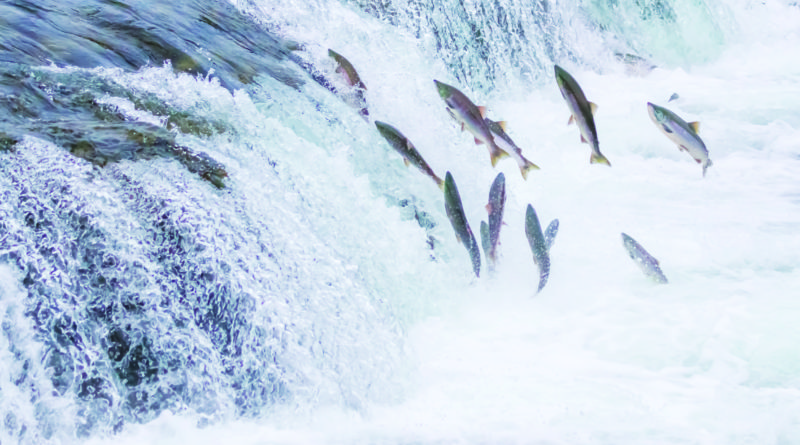Canadian officials airlift salmon after rockslide blocks migration path
CANADA—It’s a bird, it’s a plane, no … it’s salmon being airlifted to avoid a rockslide that blocked their spawning path? On July 22, Canadian officials had to take extreme measures to help Fraser River Chinook and sockeye salmon complete their migration to San Juan Islands off of Washington’s coast.
Several news outlets reported that the emergency operation was underway as a helicopter lifted an aluminum tank full of salmon to relocate them to their spawning ground in Fraser. According to an article published by KUOW, the Puget Sound’s news radio station, a work crew built a fish trap called a weir in the river to lure the salmon into a holding pool.
Tiny radio tags were inserted into the stomachs of the fish by biologists to monitor the fish as they made a two-mile journey by air upriver. Emergency responders hope to clear enough of the rockslide to make an easy path for the salmon to migrate through as they continue on their way. Part of this plan included using dynamite to remove dangerous overhanging rock as well as installing a temporary fish ladder and building smaller pools and waterfalls for the salmon to travel the waterways.
While the salmon themselves are endangered, they are a major food source for another endangered sea mammal: orca whales, commonly known as killer whales. Over the past years, a decline in the Fraser River salmon has led orcas to hunting for food in other areas beyond their usual habitat.
The U.S. Geological Survey states that salmon die after spawning; their migration leaves them lacking energy and typically they will stop eating when they return to their fresh water home. Other wild animals rely on them as a food source and when the fish bodies decompose, they add nutrients to the stream.
Each year millions of salmon travel as much as 750 miles up the Fraser River to reach their spawning ground. The article by KUOW states, “Fraser River produces more Chinook salmon than all rivers of Puget Sound combined.”
Learn more about the Fraser River salmon through the Pacific Salmon Commission at psc.org/publications/annual-reports/fraser-river-panel.


